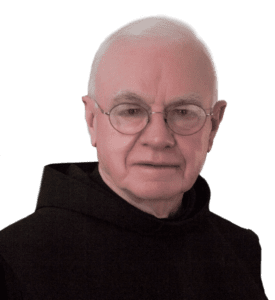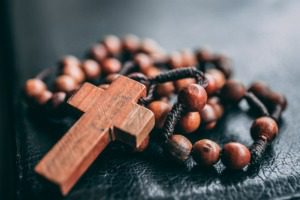RADICAL FORGIVENESS
In her powerful writing Dead Men Walking, which is an account of a ministry that embraces both prisoners on death row and the families of crime victims, Sr. Helen Prejean relates an extraordinary conversation with the father of a seventeen-year-old boy who was senselessly murdered by two brothers, Patrick and Eddie Sonnier. The father, Lloyd Leblanc, told Sr. Helen that he would have been content with imprisonment for Patrick, who received the death penalty. “Lloyd went to Patrick’s execution,” she says, “not for revenge, but hoping for an apology.” And Patrick Sonnier did not disappoint him. Before sitting in the electric chair Patrick said, “Mr. Leblanc, I want to ask your forgiveness for what me and Eddie done.” Responding to him, Lloyd Leblanc nodded his head, signaling a forgiveness he had already given.
With forgiveness we create the possibility of an end to violence. Exercising it, we may even demonstrate the presence of grace as one outcome of our personal, social, and political acts of forgiveness. The practice of forgiveness can become a liberating kind of forgetting. At the very least it can be an opportunity for getting over the encounter with evil—our own and others’—and getting on with life. This is a getting over and getting-on learned from the forgetting action that human beings commonly assume in God when asking divine forgiveness but rooted too in the recognition that the amnesty which is one of the first signs of jubilee forgiveness has the same root as amnesia. The following story told by Elaine Roulet (who, like Sr. Helen Prejean, is in prison ministry) illustrates this mysterious forgetting forgiveness:
“There once lived a wise woman, and it was clear to all who knew her
that God spoke to her, and she spoke to God. But she was a concern, and,
if the entire truth be told, a thorn in the side of the local bishop. He sought ways
to reduce her power. One day he discovered how to do this. He called the woman
to his office. “Wise woman,” he said, “I heard that God speaks to you and you speak to God. I want you to prove it by asking God to reveal to you my innermost sins.” For being a bishop, he had many. The wise woman agreed that she would, since she did
indeed speak to God, and God did indeed speak to her. So on a day agreed upon for the wise woman to carry back God’s response, the bishop returned to hear it.
He asked the wise woman whether she had petitioned God for the names of his innermost sins. She replied that she had, and so the bishop asked her the further question. “What did God say?” Her answer was immediate. “God said, “The bishop’s innermost sins? I’m sorry. Tell the bishop I forgot””
As human beings, we are called to forgive everything that it is in our power to forgive. Hanna Arendt uses the phrase “radical evil” to refer to those atrocities that sometimes are understood as literally crying to heaven, not to earth, for vengeance; those deeds that “dispossess us of all power.” These are the offenses Jesus was referring to in saying of those responsible for them that it would be better that a millstone be hung around their necks and that they be cast into the sea.
As much as the proverbial seventy-times-seven times, there is the story of the reporter who, standing at the door of a busy AIDS ward in San Francisco, finished his interview with this one last injunction. “If there is anything I should say?” he asked the nurse. The nurse who had guided him through the ward thought for a moment and then realized there was one thing. “Yes,” she replied softly. “Tell them to forgive themselves.”


